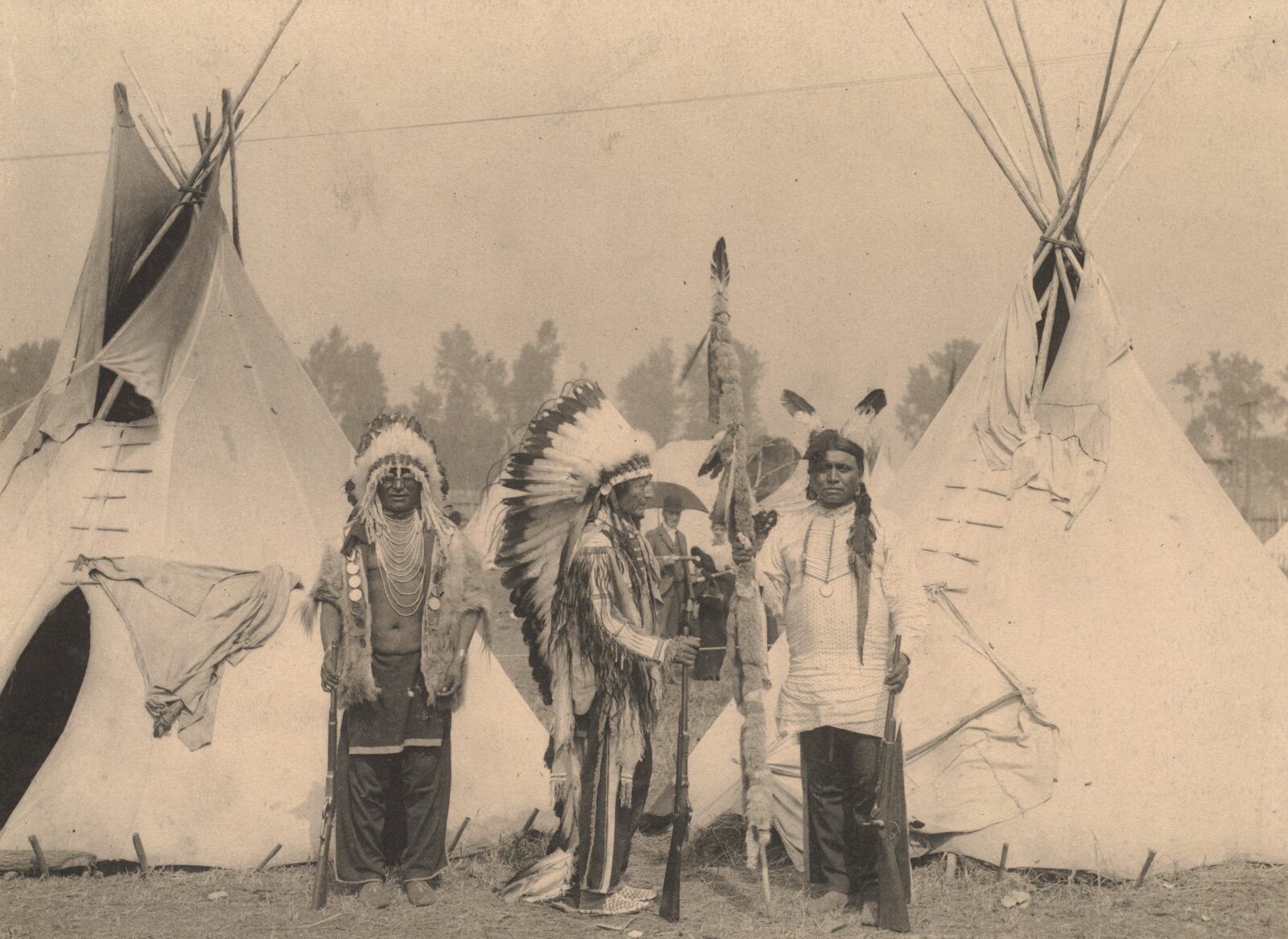If we define “home” as a solid dwelling fixed to a particular spot, many Native Americans were voluntarily homeless, as hunters and gatherers are. They would follow their food supply, which was on the move. How could they be convinced to change?
European Americans wanted to convince Native Americans that a settled life was better. Their position was Housing, Food, and Clothing first. Their belief: If Native Americans saw they could be warm and well-fed in cold weather rather than freezing and hungry, they would voluntarily settle down. If they became accustomed to products of civilization like fine clothing and (some craftily said) alcohol, they would want to settle down.
That worked for some but not for others. Native culture to a large extent was a culture of movement. Hunting was unproductive at times, but often fun. Farming on good soil was more predictably productive (although the vagaries of weather meant there was no guarantee) but also boring. Missionaries contended that God would fill the excitement vacuum for those who came to believe in Him: They’d want to go to church regularly.
In short, missionaries argued that the enormous change in culture required to keep Native American men stationary and contented would be most likely to come with a Gospel First emphasis: Those “who come to Christ and join the church turn to agriculture and raising stock, keeping cattle, hogs and fowls.” Whether the better approach was HFC First or Gospel First, the change would only come peacefully if Cherokees volunteered to change. Therein lay the problem.
In 1791, while Jefferson was Secretary of States, the United States signed with the Cherokee Nation the Treaty of Holston. It declared “perpetual peace and friendship” between the U.S., transferred some Cherokee land to U.S. control, and stated, “the United States solemnly guaranty to the Cherokee Nation all their lands not hereby ceded.”
In 1802, with Jefferson as president, he supervised another deal. Georgia claimed land to its west, but it gave up that claim in return for gaining full authority on the Native American lands within its established borders. Like someone who sells the same cow twice, the United States government was handing two dueling groups control over the same land.
Jefferson’s idea was for eastern Indians to move voluntarily to what became Arkansas. The problem became more severe during the next three decades as many did not want to move from land whites coveted. What if they persisted in the desire to stay put?
Jefferson in 1803 proposed a sneaky way to get the Indians to move: In a letter to Indiana territorial governor (and future president) William Henry Harrison, he said officials could “promote this disposition to exchange lands” by pushing Native Americans to buy more clothing and other stuff than they could afford. Jefferson said he would “be glad to see the good and influential individuals among them run into debt, because we observe that when these debts get beyond what the individual can pay, they become willing to lop them off by a cession of lands.”
In this respect, are homeless individuals today viewed like Native Americans two centuries ago? When the unhoused occupy prime land, many voters and judges would prefer they be elsewhere, but are reluctant to force them to move. The question is: What can entice them away from spots that hurt businesses and are an eyesore? Will they only leave if given apartments with complete kitchens and bathrooms in parts of the city they are pleased to inhabit? Will they not leave if required to give up drinking and drugging, or take medications they would otherwise avoid?
Part of the tragedy that led to the “Trail of Tears” almost two centuries ago grew out of Jefferson’s contradictory promises to the Cherokees and the Georgians. Jefferson probably figured that Native Americans who still wanted to hunt would voluntarily move west, and those who had become Christian farmers would be accepted by their white neighbors.
Why did Jefferson think that? One reason: He was a racist regarding both African Americans (negatively) and Native Americans (positively). Many white residents of Georgia were more consistent: They despised both.
Today the question of voluntary movement by those others dislike is still with us. Many cities don’t want homeless encampments, at least those visible in prime space. If homeless individuals don’t leave voluntarily, will they be swept off by force?

